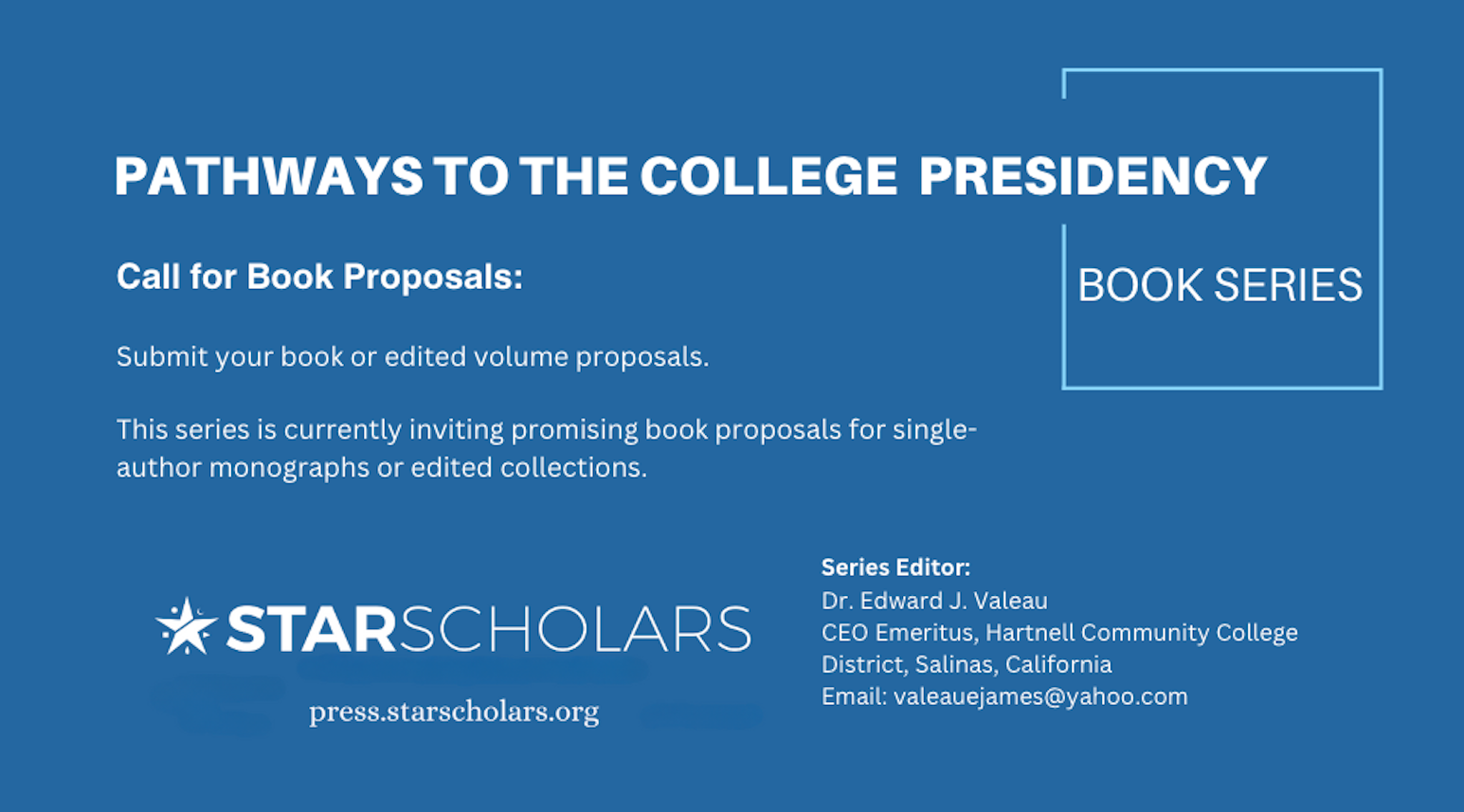Trauma, resilience, and math learning
African American students’ perspectives on adverse childhood experiences
DOI:
https://doi.org/10.32674/1px6av37Keywords:
Adverse Childhood Experiences, African American students, ecological assets, executive functioning, mathematics learning, resiliency, trauma-informed pedagogy.Abstract
This qualitative study investigates how Adverse Childhood Experiences (ACEs) shape the mathematical learning experiences of ten African American community college students from urban backgrounds. While ACEs are known to influence mental health and cognitive development, their specific impact on mathematics learning remains underexplored—especially among historically marginalized populations. Guided by Contemporary Trauma Theory, the Theory of Allostasis, and the Ecological Assets framework, this study reveals how trauma manifests in executive functioning challenges, affective responses, and learning behaviors. Despite these obstacles, students demonstrated significant resilience, supported by ecological assets such as mentoring, supportive relationships, and culturally responsive environments. Findings underscore the importance of trauma-informed, equity-focused approaches in STEM education and call for a reexamination of deficit narratives around mathematics achievement.
References
Alvarez, H. K. (2020). The impact of trauma on learning and behavior: A brief overview for educators. The Clearing House: A Journal of Educational Strategies, Issues and Ideas, 93(1), 1–5.
Anderson, L. A., Black, M. M., & Weisz, J. R. (2023). Early trauma and its neurodevelopmental impact. Child Development Perspectives, 17(1), 15–22.
Basch, C. E. (2011). Healthier students are better learners: A missing link in school reforms to close the achievement gap. Journal of School Health, 81(10), 593–598.
Battey, D., Neal, R. A., Leyva, A., & Park, G. (2021). Racial equity and justice in mathematics education. Journal for Research in Mathematics Education, 52(5), 466–479.
Bernabini, L., Bonifacci, P., & de Jong, P. F. (2021). The relationship of reading abilities with the underlying cognitive skills of math: A dimensional approach. Frontiers in Psychology, 12, 577488.
Boyraz, G., Granda, R. E., Baker, C. N., Tidwell, L. L., & Waits, J. B. (2013). Posttraumatic stress and academic achievement in college students: The role of college adjustment and coping. Journal of College Student Development, 54(3), 209–214.
Braun, V., & Clarke, V. (2021). One size fits all? What counts as quality practice in (reflexive) thematic analysis? Qualitative Research in Psychology, 18(3), 328–352.
Campbell, L. L., Adams, G., & Davis, L. (2020). Recruiting Black students for qualitative research: A critical guide. The Qualitative Report, 25(12), 4130–4145.
Candela, A. G. (2019). Exploring the function of member checking. The Qualitative Report, 24(3), 619–628.
Carrion, V. G., & Wong, S. S. (2012). Can traumatic stress alter the brain? Understanding the implications of early trauma on brain development and learning. Journal of Adolescent Health, 51(2), S23–S28.
Castillo, J. H. R., & De Losada, M. F. (2020). How exclusion, inequality, curriculum and the teacher’s expectations influence the learning of school mathematics. Visión Electrónica, 14(2), 271–278. https://doi.org/10.14483/22484728.16727
Craig, S. E. (2016). Trauma-sensitive schools: Learning communities transforming children's lives, K–5. Teachers College Press.
Craig, S. E. (2017). Creating trauma-sensitive schools: A guide for school social workers and educators. Oxford University Press.
Creswell, J. (2014). Research design: Qualitative, quantitative, and mixed methods approaches. SAGE Publications, Inc.
Darling-Hammond, L. (2010). The flat world and education: How America's commitment to equity will determine our future. Teachers College Press.
de Kloet, E. R., & Joëls, M. (2023). Corticosteroid hormones in the central stress response: Quick-and-slow. Frontiers in Neuroendocrinology, 70, 101078.
DePrince, A. P., Weinzierl, K. M., & Combs, M. D. (2009). Executive function performance and trauma exposure in a community sample of children. Child Abuse & Neglect, 33(6), 353–361.
Duncan, G. J., & Murnane, R. J. (Eds.). (2011). Whither opportunity?: Rising inequality, schools, and children's life chances. Russell Sage Foundation.
Duval, R. (2006). A cognitive analysis of problems of comprehension in a learning of mathematics. Educational Studies in Mathematics, 61, 103–131.
Dyce, C. M. (2015). Trauma in the lives of youth: Issues for education, mental health, and policy. The Urban Review, 47(4), 760–770.
Edman, J. L., Lynch, R. T., & Yates, B. T. (2016). The effects of childhood abuse on academic achievement in college students. Journal of College Counseling, 19(2), 108–120.
Fearon, R. M. P., & Roisman, G. I. (2017). Attachment theory: Progress and future directions. Current Opinion in Psychology, 15, 131–136.
Felitti, V. J., Anda, R. F., Nordenberg, D., Williamson, D. F., Spitz, A. M., Edwards, V., ... & Marks, J. S. (1998). Relationship of childhood abuse and household dysfunction to many of the leading causes of death in adults. American Journal of Preventive Medicine, 14(4), 245–258.
Ford, J. D., Grasso, D. J., Elhai, J. D., & Courtois, C. A. (2015). Posttraumatic stress disorder: Scientific and professional dimensions. Academic Press.
Fuchs, L. S., Geary, D. C., Fuchs, D., Compton, D. L., & Hamlett, C. L. (2010). Do different types of school mathematics development depend on different constellations of numerical versus general cognitive abilities? Developmental Psychology, 46(6), 1731.
Goodman, R. (2017). Contemporary trauma theory and trauma-informed care in substance use disorders: A conceptual model for integrating coping and resilience. Advances in Social Work, 18(1), 186-201.
Goodman, R. D., Miller, M. D., & West-Olatunji, C. A. (2012). Traumatic stress, socioeconomic status, and academic achievement among primary school students. Psychological Trauma: Theory, Research, Practice, and Policy, 4(3), 252–259. https://doi.org/10.1037/a0024912
Haft, S. L., & Hoeft, F. (2017). Poverty, privilege, and brain development: Empirical findings and ethical implications. Neuroethics, 10(1), 93–103.
Hanushek, E. A., Peterson, P. E., & Woessmann, L. (2019). The achievement gap fails to close. Education Next, 19(3), 8–17.
Helminen, E. C., Scheer, J. R., Edwards, K. M., & Felver, J. C. (2022). Adverse childhood experiences exacerbate the association between day-to-day discrimination and mental health symptomatology in undergraduate students. Journal of Affective Disorders, 297, 338-347 https://doi.org/10.1016/j.jad.2021.10.058
Herman, J. L. (1992). Trauma and recovery: The aftermath of violence—from domestic abuse to political terror. Basic Books.
Hinojosa, M. S., Hinojosa, R., Bright, M., & Nguyen, J. (2019). Adverse childhood experiences and grade retention in a national sample of US children. Sociological Inquiry, 89(3), 401-426. https://onlinelibrary.wiley.com/doi/abs/10.1111/soin.12272
Holland, J., Khandaker, G., Dauvermann, M., Morris, D., Zammit, S., & Donohoe, G. (2020). Effects of early life adversity on immune function and cognitive performance: Results from the ALSPAC cohort. Social Psychiatric and Psychiatric Epidemiology, 55(6), 723-733. https://doi-org.proxy-ms.researchport.umd.edu/10.1007/s00127-019-01813-8
Horn, C. (2003). High-stakes testing and students: Stopping or perpetuating a cycle of failure. Theory into Practice, 42(1), 30-41. https://doi.org/10.1207/s15430421tip4201_5
Hung, M., Smith, W. A., Voss, M. W., Franklin, J. D., Gu, Y., & Bounsanga, J. (2020). Exploring student achievement gaps in school districts across the United States. Education and Urban Society, 52(2), 175-193. https://doi.org/10.1177/0013124519833442
Johnson, B. L., & Kritsonis, W. A. (2006b). National implications: How poverty and race affect school funding and student achievement. National Forum of Educational Administration and Supervision Journal, 23(4), 8–16.
Kalia, V., Knauft, K., & Hayatbakhsh, N. (2021). Adverse childhood experiences and executive function in children: A systematic review. Frontiers in Psychology, 12, 689204.
Kalmakis, K. A., Chandler, G. E., Roberts, S. J., & Leung, K. (2020). The relationship of adverse childhood experiences to cognitive functioning among adults. Journal of Psychiatric and Mental Health Nursing, 27(3), 280–288.
Kamenetz, A. (2017). The art of screen time: How your family can balance digital media and real life. PublicAffairs.
Ladson-Billings, G. (2021). I’m here for the hard re-set: Post pandemic pedagogy to preserve our culture. Equity & Excellence in Education, 54(1), 68-78. https://www.tandfonline.com/doi/abs/10.1080/10665684.2020.1863883
https://link.springer.com/article/10.1007/s10649-011-9298-1
Larson, R. B. (2019). Controlling social desirability bias. International Journal of Market Research, 61(5), 534-547. https://journals.sagepub.com/doi/abs/10.1177/1470785318805305
Larson, S., Chapman, S., Spetz, J., & Brindis, C. (2017). Chronic childhood trauma, mental health, academic achievement, and school-based health center mental health services. Journal of School Health, 87(9), 675-686. https://onlinelibrary.wiley.com/doi/abs/10.1111/josh.12541
Lerner, R. M., Lerner, J. V., Bowers, E. P., & Geldhof, G. J. (2012). Positive youth development and relational-developmental systems. In R. M. Lerner (Ed.), Handbook of Child Psychology and Developmental Science (7th ed.). Wiley.
Li, Y., Bebiroglu, N., Phelps, E., & Lerner, R. M. (2010). Positive youth development and college attendance: Beyond selection and prediction. Youth & Society, 42(6), 763–787.
Locke, K., Feldman, M., & Golden-Biddle, K. (2022). Coding practices and iterativity: Beyond templates for analyzing qualitative data. Organizational research methods, 25(2), 262-284.
Mall, S., Mortier, P., Taljaard, L., Roos, J., Stein, D., & Lochner, C. (2018). The relationship between childhood adversity, recent stressors, and depression in college students attending a South African university. BMC Psychiatry, 18(1), 1-10. https://bmcpsychiatry.biomedcentral.com/articles/10.1186/s12888-017-1583-9
Martin, D. B., Price, P. G., & Moore, R. (2019). Refusing systemic violence against Black children: Toward a Black liberatory mathematics education. In J. Davis & C. Jett (Eds.), Critical race theory in mathematics education (pp. 32-55). Routledge.
Moylan, C. A., Herrenkohl, T. I., Sousa, C., Tajima, E. A., Herrenkohl, R. C., & Russo, M. J. (2010). The effects of child abuse and exposure to domestic violence on adolescent internalizing and externalizing behavior problems. Journal of Family Violence, 25(1), 53-63. https://link.springer.com/article/10.1007/s10896-009-9269-9
Munter, C., & Haines, C. (2019). Mathematics teachers’ enactment of cognitively demanding tasks and students’ perception of racial differences in opportunity. Mathematical Thinking and Learning, 21(3), 155-177. https://doi.org/10.1080/10986065.2019.1576002
National Assessment of Educational Progress. (2020). National assessment of educational. The Nation's Report Card. https:www.nationsreportcard.gov/ndecore/xplore/ltt
Naik, P. (2019). When trauma-informed pedagogy is not enough: The need for increased school-based mental health services in public schools. Kennedy School Review, 19, 66-69.
Nijenhuis, E., & Van der Hart, O. (2011). Dissociation in trauma: A new definition and comparison with previous formulations. Journal of Trauma and Dissociation: The Official Journal of the International Society for the Study of Dissociation (ISSD), 12(4), 416-445. https://doi.org/10.1353/wsq.0.0016
Palmer, S. R., Brown, A. C., & Wolff, T. J. (2014). Trauma-informed education: A social justice imperative. Journal of Trauma & Dissociation, 15(2), 111–125.
Parker, C., Scott, S., & Geddes, A. (2019). Snowball sampling. SAGE Research Methods Foundations.
Porche, M., Fortuna, L., Lin, J., & Alegria, M. (2011). Childhood trauma and psychiatric disorders as correlates of school dropout in a national sample of young adults. Child Development, 82(3), 982-998. https://doi-org.proxy-ms.researchport.umd.edu/10.1111/j.1467-8624.2010.01534.x
Riegle-Crumb, C., & Grodsky, E. (2010). Racial-ethnic differences at the intersection of math course-taking and achievement. Sociology of Education, 83(3), 248-270. https://journals.sagepub.com/doi/abs/10.1177/0038040710375689
Sacks, V., & Murphey, D. (2018). The prevalence of adverse childhood experiences, nationally, by state, and by race or ethnicity. Child Trends, 20, 1-20. https://www.childtrends.org/publications/prevalence-adverse-childhood-experiences-nationally-state-race-ethnicity
Schmidt, W. H., Guo, S., & Houang, R. T. (2021). The role of opportunity to learn in ethnic inequality in mathematics. Journal of Curriculum Studies, 53(5), 579-600. https://doi.org/10.1080/00220272.2020.1863475
Sciaraffa, M. A., Zeanah, P. D., & Zeanah, C. H. (2018). Understanding and promoting resilience in the context of adverse childhood experiences. Early Childhood Education Journal, 46(3), 343–353.
Sheffler, J. L., Piazza, J. R., Quinn, J. M., Sachs-Ericsson, N., & Stanley, I. H. (2019). Adverse childhood experiences and coping strategies: Identifying pathways to resiliency in adulthood. Anxiety, Stress & Coping, 32(5), 594–609.
Sitler, H. C. (2008). Teaching with awareness: The hidden effects of trauma on learning. The Clearing House, 82(3), 119–123.
Snipes, J., & Waters, J. (2005). The effects of the implementation of standards-based accountability. Council of the Great City Schools.
Sonu, S., Post, S., & Feinglass, J. (2021). Adverse childhood experiences and the onset of chronic disease in young adulthood. Preventive Medicine, 145, 106422.
Terrasi, S., & De Galarce, P. (2017). Trauma and learning in America’s classrooms. Phi Delta Kappan, 98(6), 35-41. https://journals.sagepub.com/doi/abs/10.1177/0031721717696476
Thompson, T., & Massat, C. (2005). Experiences of violence, post-traumatic stress, academic achievement and behavior problems of urban African-American children. Child and Adolescent Social Work Journal, 22(5–6), 367-393. https://link.springer.com/article/10.1007/s10560-005-0018-5
Vohs, K. D., & Baumeister, R. F. (2004). Understanding self-regulation. In R. F. Baumeister & K. D. Vohs (Eds.), Handbook of self-regulation: Research, theory, and applications (pp. 1–9). Guilford Press.
Walker, E. (2006). Urban high school students' academic communities and their effects on mathematics success. American Educational Research Journal, 43(1), 43¬-73. https://journals.sagepub.com/doi/abs/10.3102/00028312043001043
Walker, L., & Goings, R. (2017). A dream deferred: How trauma impacts the academic achievement of African American youth. In N. Finigan-Carr (Ed.), Linking health and education for African American students’ success (pp. 29–38). Routledge.
Watt, T. T., Rogers, R., & Moore, K. (2021). Racial disparities in ACEs: Implications for research and policy. Child and Adolescent Social Work Journal, 38, 257–270.

 Call for Special Issue Proposals
Call for Special Issue Proposals 


